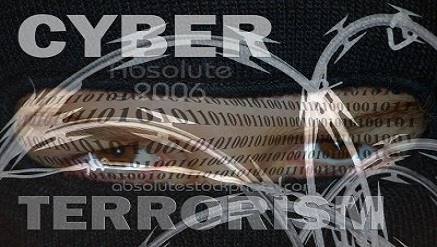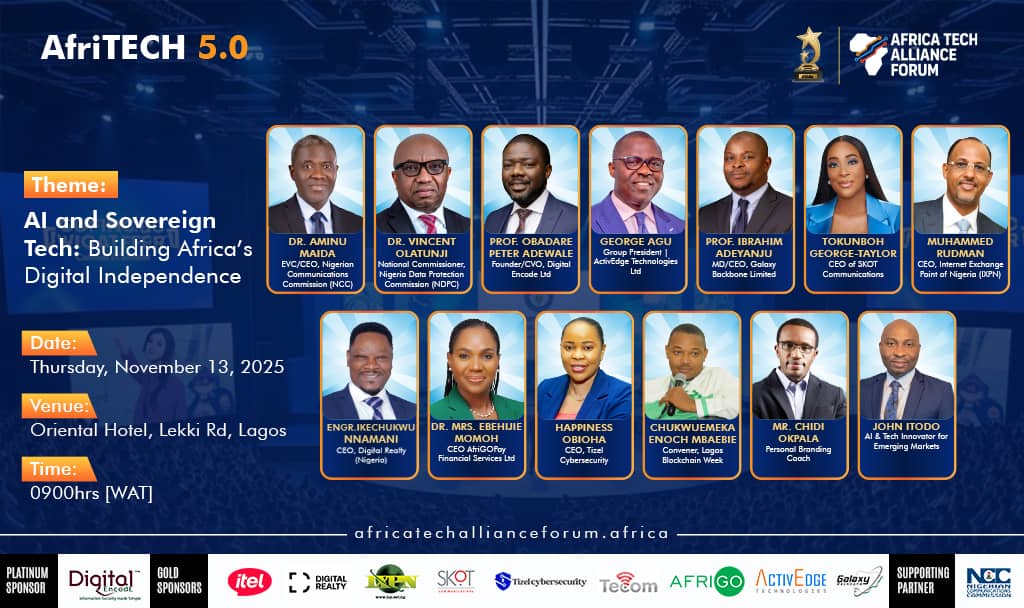General News
Nigeria and Looming Cyber Arms Race

Cyber-warfare is no longer an abstract threat to countries—it is happening. It is a clear and present danger.
In fact, the new battle ground is the cyberspace which is becoming a full-blown war zone as governments across the globe clash for digital supremacy in the new, mostly invisible theater of operations.
Once limited to opportunistic criminals, cyber attacks are becoming a key weapon for any government seeking to defend national sovereignty and project national power.
From strategic cyber espionage campaigns, such as Moonlight Maze and Titan Rain, to the destructive, such as military cyber strikes on Georgia and Iran; human and international conflicts are entering a new phase in their long histories.
Today, digital networks could be used as a conduit to gas lines, power grids and transportation systems to silently deliver devastating cyberattacks to countries.
Case in point, a computer worm was discovered in June 2010 that is called Stuxnet.
The malware is spread via Microsoft Windows, and targets Siemens industrial software and equipment.
The Siemens industrial software and equipment infected is literally the equipment that runs the world as we know it.
That means it can be programmed to target a specific operating system and take over the running of the program unbeknownst to even the most observant operator.
Terrorists are increasingly using online technology, including Google Earth and Street View, for attack planning.”
In Nigeria either by ignorance or lack of knowledge or both; the federal government has been unable to secure its official websites thus raising questions over claims by the government of efforts to reduce the growing threat of violation of its digital presence.
Any cyber attack on Nigeria’s critical infrastructure will shut down the country because she lacks any form of protection,
The country’s security managers must understand that tackling these new and emerging threats requires that the country’s technology must constantly evolve and adapt.
The federal government must heed the warnings of experts who have called for building of “high technical skill” including the setting up of “ethical hackers” to protect networks by hacking and stealing vital information and later returning them to show their vulnerability.
Nigeria must also learn lessons from attacks that have happened elsewhere and prepare for the possibility that they could be replicated here.
Additionally, legislation that encourages participation by streamlining processes and reducing legal uncertainty for industry is necessary to help the public and private sectors be more responsive and accountable. In the process, care must be taken to protect privacy and civil liberties.
General News
Senate Committee Says $300Bn Lost to Oil Theft

The Senate ad hoc committee investigating persistent crude oil theft in the Niger Delta has disclosed that a forensic audit conducted by independent consultants revealed that suspected oil thieves stole more than $300 billion worth of oil, which ought to have been Nigeria’s proceeds from crude oil sales.

Senator Ned Nwoko, chairman of the committee made the disclosure this while presenting an interim report of the committee during Wednesday’s plenary, adding that the findings were based on a forensic review conducted by consultants engaged by the committee.
The Senator representing Delta North Senatorial District explained that the stolen funds were traced to both local and international transactions, however, requested that the committee should be given the mandate to track, trace, and recover all proceeds of stolen crude oil both locally and internationally
“The ad hoc committee should be given the mandate to track, trace, and recover all proceeds of stolen crude oil both locally and internationally, as forensic review by the consultant shows over $22 billion, $81 billion, and $200 billion remains unaccounted,” he said.
Nwoko who did not disclosed identity of the consultants, stated that the period covered by the forensic report, the identities of the suspected perpetrators and the companies allegedly involved.
The federal lawmaker, however, pointed out that the report was interim, suggesting that more findings would be made public in the committee’s final submission, adding that the committee recommended that the Nigerian government establish a special court dedicated to prosecuting oil-related offences and offenders appropriately.
General News
Rack Centre, EdgeNext Debut new Cloud Services in Nigeria

Rack Centre, a Nigerian data centre, and EdgeNext, a global edge cloud provider, have announced new Content Delivery Network (CDN) and cloud hosting services, in response to the country’s growing demand for high-performance digital infrastructure.

The services, which are hosted at Rack centre’s Tier III cloud-neutral data centre in Lagos, are intended to improve content delivery, reduce latency, and boost cloud hosting efficiency for Nigerian companies and users.
EdgeNext’s global acceleration network will enable faster and more dependable performance for video streaming, social media, e-commerce, and gaming platforms.
The company also intends to launch specialised gaming cloud solutions designed specifically for Nigeria’s burgeoning gaming community, with low latency and high concurrency capabilities for mobile and PC gamers.
Terence Wang, CEO of EdgeNext, commented that the launch represents a significant milestone in the company’s growth, and that the relationship with Rack Centre would ensure “secure, reliable, and low-latency services” for Nigerian organisations and developers.
Rack Centre CEO Lars Johannisson noted that the arrival of EdgeNext demonstrates the robustness of Nigeria’s digital infrastructure ecosystem.
General News
Countdown to AfriTECH 5.0: Meet the Speakers Driving Conversations on Africa’s Digital Independence in the AI Era

The stage is set for the fifth edition of the Africa Tech Alliance Forum (AfriTECH 5.0), scheduled to hold on Thursday, November 13, 2025, at the Oriental Hotel, Lekki Road, Lagos.

The conference will commence at 9:00 AM (WAT), bringing together Africa’s foremost technology leaders, innovators, regulators, and investors to discuss the theme:
“AI and Sovereign Tech: Building Africa’s Digital Independence.”
As Africa continues to deepen its digital transformation agenda, AfriTECH 5.0 will explore how artificial intelligence (AI), indigenous innovation, and sovereign technologies can accelerate the continent’s quest for digital autonomy, security, and sustainable growth.
Distinguished Speakers and Thought Leaders
This year’s edition will feature a lineup of prominent industry leaders, policymakers, and innovators including: Dr. Aminu Maida, Executive Vice Chairman/CEO, Nigerian Communications Commission (NCC); Dr. Vincent Olatunji, National Commissioner, Nigeria Data Protection Commission (NDPC); Prof. Obadare Peter Adewale, Founder/Chief Visionary Officer, Digital Encode Ltd; George Agu, MD/CEO, ActivEdge Technologies Ltd., Prof. Ibrahim Adeyanju, MD/CEO, Galaxy Backbone Limited; Tokunboh George-Taylor, CEO, SKOT Communications; Muhammed Rudman, CEO, Internet Exchange Point of Nigeria (IXPN); Engr. Ikechukwu Nnamani, CEO, Digital Realty Nigeria, and Dr. (Mrs.) Ebehijie Momoh, CEO, Afrorgy Financial Services Ltd.
Other speakers are; Happiness Obohia, CEO, Tizeti Cybersecurity; Chukwuemeka Enoch Mbabaie, Convener, Lagos Blockchain Week; Mr. Chidi Okpala, Personal Branding Coach; John Itodo, AI & Tech Innovator for Emerging Markets, amongst others.
These speakers will provide insights on how Africa can leverage homegrown technologies and AI-driven systems to strengthen its digital sovereignty and competitiveness.
“AfriTECH 5.0 promises a robust and interactive agenda featuring, Keynote Presentations from industry regulators and global tech leaders; Goodwill Messages from government representatives and policy influencers; a Fireside Chat hosted by Lagos Blockchain Week, focused on decentralized systems and blockchain innovation; Panel Discussions addressing data governance, fintech inclusion, cybersecurity, and the AI economy; a Tech Exhibition, showcasing innovative digital products and solutions from leading companies, and the prestigious Africa Tech Alliance Excellence (ATAEx) Awards, celebrating organizations and individuals driving excellence in Africa’s digital ecosystem”, said Mr. Chike Onwuegbuchi, the co-convener of AfriTECH 5.0.
AfriTECH 5.0 is supported by a coalition of technology enablers and sponsors including; Platinum sponsor: Digital Encode Limited.
Others are Gold Sponsors; itel, SKOT Communications, Tecom, Afrigo Payment Financial Services Limited, Tizel Cybersecurity ActivEdge Technologies, Galaxy Backbone Ltd, while the Nigeria Communications Commission (NCC) is a supporting partner.
Africa Tech Alliance Forum (AfriTECH) is a premier annual event dedicated to driving conversations and collaborations around Africa’s digital transformation.
The platform connects stakeholders across policy, technology, and business to shape the continent’s tech-driven future.
Participation at AfriTECH 5.0 is free, but registration is required and can be done via the link: www.africatechallianceforum.africa.

 E-Financial2 days ago
E-Financial2 days agoZachXBT, Crypto Investigator Lists Nigeria, Others as Worst Jurisdictions for Scam Victims

 Telecom2 days ago
Telecom2 days agoFUNAAB 500-Level Student Wins 5th Brand New Car at MTN Pulse Campus Invasion

 Telecom2 days ago
Telecom2 days agoLagos to Launch Automated Telecom Permit System by 2026

 Telecom2 days ago
Telecom2 days agoEricsson, MTN Nigeria Boost Network With New Tech

 News2 days ago
News2 days agoFG Taps John Nwabueze as First Tax Ombudsman

 E-Business2 days ago
E-Business2 days agoReport Reveals DLL Hijacking Attacks have Doubled since 2023

 Telecom2 days ago
Telecom2 days agoGlo Unveils New “Glo Collabo Bundles,” Offers More Value for Less

 E-Financial2 days ago
E-Financial2 days agoFirms Eye Fintech Model for Insurance



























